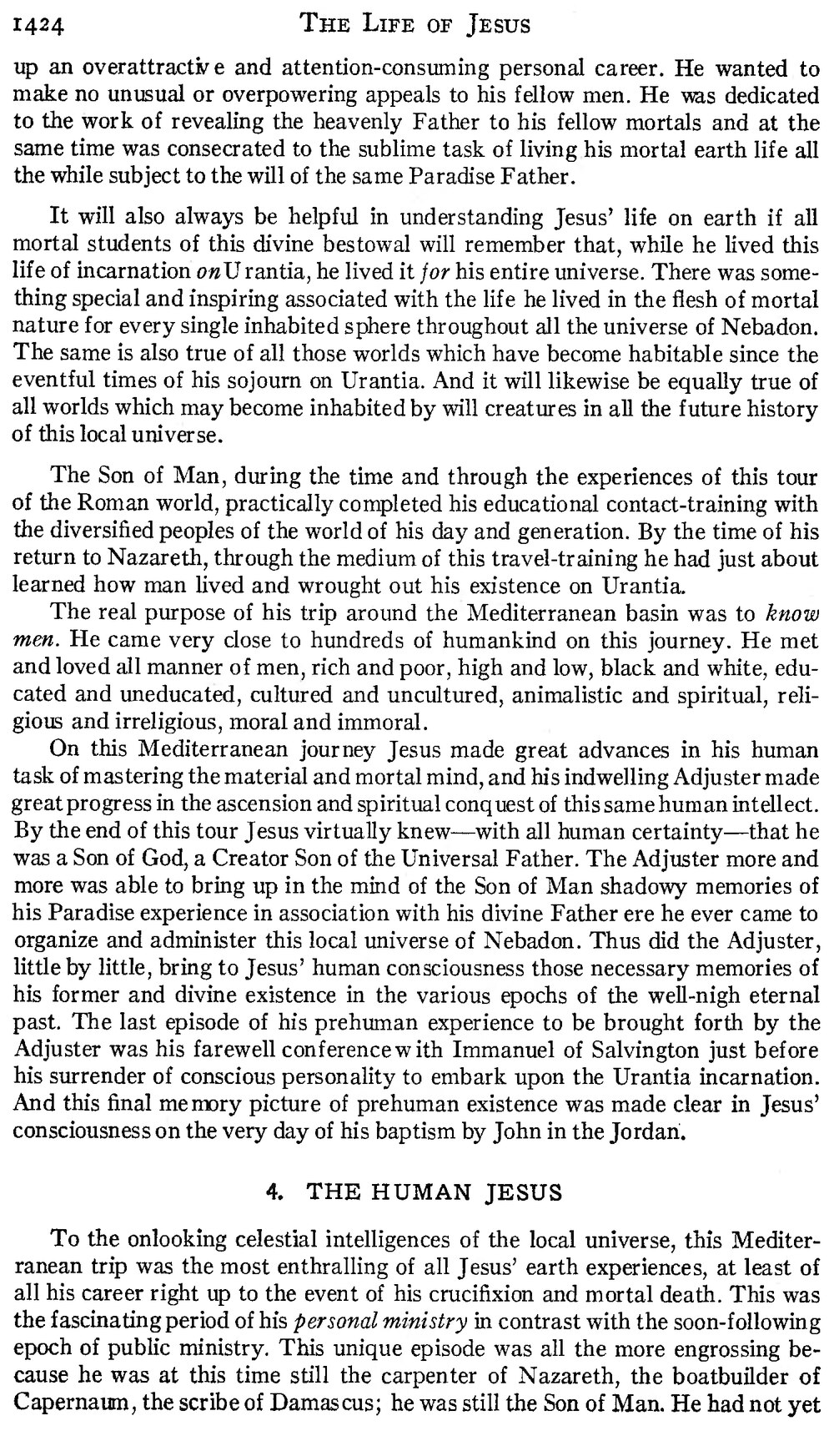up an overattractive and attention-consuming personal career. He wanted to make no unusual or overpowering appeals to his fellow men. He was dedicated to the work of revealing the heavenly Father to his fellow mortals and at the same time was consecrated to the sublime task of living his mortal earth life all the while subject to the will of the same Paradise Father.
It will also always be helpful in understanding Jesus' life on earth if all mortal students of this divine bestowal will remember that, while he lived this life of incarnation on Urantia, he lived it for his entire universe. There was something special and inspiring associated with the life he lived in the flesh of mortal nature for every single inhabited sphere throughout all the universe of Nebadon. The same is also true of all those worlds which have become habitable since the eventful times of his sojourn on Urantia. And it will likewise be equally true of all worlds which may become inhabited by will creatures in all the future history of this local universe.
The Son of Man, during the time and through the experiences of this tour of the Roman world, practically completed his educational contact-training with the diversified peoples of the world of his day and generation. By the time of his return to Nazareth, through the medium of this travel-training he had just about learned how man lived and wrought out his existence on Urantia.
The real purpose of his trip around the Mediterranean basin was to know men. He came very close to hundreds of humankind on this journey. He met and loved all manner of men, rich and poor, high and low, black and white, educated and uneducated, cultured and uncultured, animalistic and spiritual, religious and irreligious, moral and immoral.
On this Mediterranean journey Jesus made great advances in his human task of mastering the material and mortal mind, and his indwelling Adjuster made great progress in the ascension and spiritual conquest of this same human intellect. By the end of this tour Jesus virtually knew—with all human certainty—that he was a Son of God, a Creator Son of the Universal Father. The Adjuster more and more was able to bring up in the mind of the Son of Man shadowy memories of his Paradise experience in association with his divine Father ere he ever came to organize and administer this local universe of Nebadon. Thus did the Adjuster, little by little, bring to Jesus' human consciousness those necessary memories of his former and divine existence in the various epochs of the well-nigh eternal past. The last episode of his prehuman experience to be brought forth by the Adjuster was his farewell conference with Immanuel of Salvington just before his surrender of conscious personality to embark upon the Urantia incarnation. And this final memory picture of prehuman existence was made clear in Jesus' consciousness on the very day of his baptism by John in the Jordan.
To the onlooking celestial intelligences of the local universe, this Mediterranean trip was the most enthralling of all Jesus' earth experiences, at least of all his career right up to the event of his crucifixion and mortal death. This was the fascinating period of his personal ministry in contrast with the soon-following epoch of public ministry. This unique episode was all the more engrossing because he was at this time still the carpenter of Nazareth, the boatbuilder of Capernaum, the scribe of Damascus; he was still the Son of Man. He had not yet

